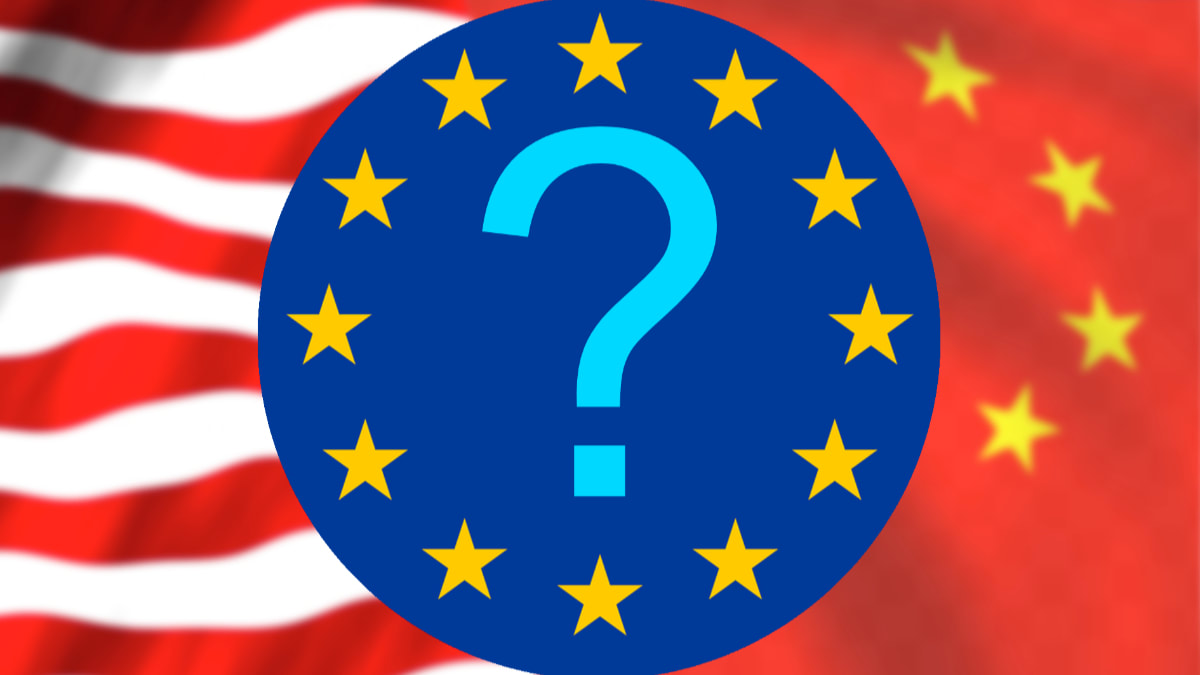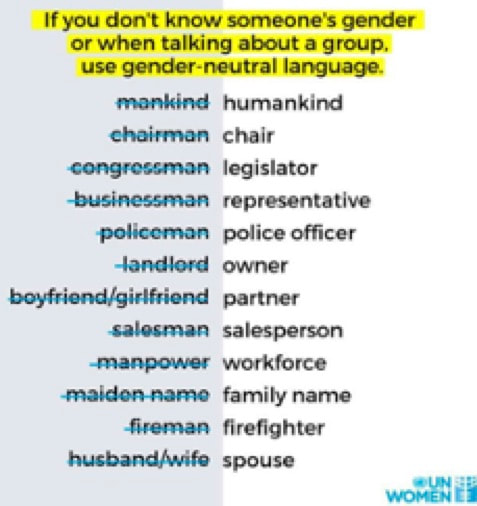|
Shifting attitudes in Europe “Europeans’ attitudes towards the United States have undergone a massive change. Majorities in key member states now think the US political system is broken, that China will be more powerful than the US within a decade, and that Europeans cannot rely on the US to defend them.” (ecfr.eu). This is one of the conclusions reached in a new policy brief just published by The European Council on Foreign relations (ecfr). The policy brief is based upon survey of public opinions of a little more than 15.000 respondents in eleven European Countries in last months of 2020. Declining trust in the USA “Looking at the results for Europe as a whole, 32 per cent of all respondents to ECFR’s poll agree that, after voting for Trump in 2016, Americans cannot be trusted – and only 27 per cent disagree with this statement (the rest do not have an opinion on the issue).” (ecfr.eu). The distrust is especially marked in Germany where 53% either “agreed” or “strongly agreed” with the statement that Americans cannot be trusted. At the opposite end of the spectrum we find Hungary where the combined percentage of those agreeing or strongly agreeing only reach 19% and Poland where it reaches 23%. The declining trust in the US is also found when respondents were asked if Europe can rely on the US to defend Europe. 67% of the respondents believed that Europe cannot always rely on the US, and that Europe needs its own defence capabilities. Only 10% believed that the US would always protect Europe, and that we would not have to worry about our own defence. Belief in Chinese dominance “Across the 11 surveyed countries, six out of ten respondents think that China will become more powerful than the US within the next ten years.” (ecfr.eu). This belief appears to be especially strong in Spain where it is viewed as either “probable” or “certain” by 79% of the respondents. In Italy and Portugal similar beliefs are held by 72%. A less pessimistic view of the power of the US strength in relation to China is found in Denmark, Hungary and Poland, but even here at least 48% of the respondents believe that China will be stronger than the US in 10 years’ time. European fence sitting “Biden has called for the US and Europe to form a united front against China and thereby shape its rise. But ECFR’s poll shows that, in today’s Europe, there is no dream of a return to a bipolar world in which the West would face off against China and its allies as it once did against the Soviet Union… Europeans appear keen to forge their own path rather than fall into line behind America’s China policy. The largest number of those surveyed in this and previous polls seem to support the idea of a more sovereign and autonomous Europe.” (ecfr.eu). From the survey it is evident that at the moment Europeans would prefer sit on the fence and avoid to choose sides in disagreements between the US and China. 60% of Europeans wants their country to stay neutral, while 22% would want their country to support the US. Only a minority 6% of the respondents answered that they would want their country to take China’s side. The fence sitting position found in the survey of the population seem to fit quite well with the views found in the official political stance of major EU powers, especially of course Germany, with its large export to China. A policy brief by The Economist comes to a similar conclusion. Europe will aim to balance its ties with US and China: “This will see Europe align with the US on political and security issues, while preserving active engagement with China in areas of mutual interest, including trade and investment, WTO reform and climate change.” (The Economist). Identifying four geopolitical views found in Europe The policy brief by The European Council on Foreign relations argues that it is possible to identify what it calls four geopolitical population segments or tribes in Europe on the basis of the eleven countries surveyed (ecfr.eu): “In the Euope we trust” The largest segment (35%) consists of the people who have trust in the political system of the EU. In some countries there has even been a growing confidence in the EU and especially in leading role played by Germany. This segment “is made up of people who think that, politically, Europe is healthy while the US is broken. Its members mostly come from more prosperous countries, and it is the largest tribe in Denmark (where it makes up 60 per cent of respondents), Germany (53 per cent), Sweden (51 per cent), the Netherlands (50 per cent) and Portugal (37 per cent)”. “In decline we trust” The second largest segment (29%) consist of people who have a pessimistic view of the political systems and their ability to cope in both the US and the EU. “They are most likely to believe that China will overtake the West as a shaper of international politics (68 per cent believe that China is likely to be more powerful than the US within ten years, and 32 per cent say the same about Russia).” This segment is especially large in France (43%), the UK (42%), Spain (38%) and Italy (36%). “In the West we trust” This segment accounts for 20%, and consists of people who believe in the political systems in both the US and the EU. Together the West will manage. “They are most likely to be convinced of the superiority of the Western political and economic system, and somewhat less likely than other tribes to fear that China will be in the geopolitical driving seat in the future.” Adherents of this view are found especially in Hungary (50%) and Poland (48%). “In America we trust” This segment only accounts for 9%, and consists of people putting their faith in the US political system and its ability to uphold the West, while the EU’s political system is seen as broken and declining. The segment is very small in the UK (3%), Denmark (3%), Portugal (4%) and Germany (4%). A more positive outlook is found in Italy (22%), Poland (12%), France (12%), Hungary and Spain (each with 10%). It seems quite remarkable that the population in Poland and Hungary have such a low faith in the US. European neutrality – a dangerous illusion! The idea of Europe taking a neutral stance in relation to hegemonic struggle between the US and China would seem to be based upon wishful thinking and apparent ignorance of what is at stake. While there is no question of a rejuvenated and self-conscious and growing Chinese hegemony, the signs of internal disagreement and decline of the West doesn't bode well for upholding existing Western hegemony, and for Europe hoping to take a neutral stance. Europe seems to forget that it is shielding under the mighty umbrella of US military power, itself contributing very little to the power struggle with China and Russia. All the while talking grandly about peace based upon multilateralism and the rule of law. As if this isn't in the end based upon the power to uphold these grand ideas. To counter rise of an increasingly powerful China believing in its own superiority, and to avoid an "Untergang des Westen" scenario, there must be a rejuvenated and united Western drive, a will to power, and a conviction in the validity of ideas and values of the West. Instead of giving in to defeatism and value relativism that cripples the ability to decide and to act. To be really heretical: A Re-vitalization of the belief in the superiority of the ideas and values that shaped the West. Other blog posts discussing similar issues: NATO-2030 Report – Wishful thinking ignoring the real challenges https://wahrnehmungen.weebly.com/blog/nato-2030-report-wishful-thinking-ignoring-the-real-challenges The West against the Rest, part Four – the looming struggle with Chinese hegemony https://wahrnehmungen.weebly.com/blog/the-west-against-the-rest-part-4-the-looming-struggle-with-chinese-hegemon The West against Iran – confront or appease? https://wahrnehmungen.weebly.com/blog/the-west-against-iran-confront-or-appease The West against the Rest, Part Three: Decline of a "white" world? https://wahrnehmungen.weebly.com/blog/the-west-against-the-rest-part-three-decline-of-a-white-world The West against the Rest, Part Two – Economic and scientific performance https://wahrnehmungen.weebly.com/blog/the-west-against-the-rest-part-two-economic-and-scientific-performance The West against the Rest, Part One: Liberty, democracy and rule of law https://wahrnehmungen.weebly.com/blog/the-west-against-the-rest-part-one-liberty-democracy-and-rule-of-law Closing our minds and erasing our past https://wahrnehmungen.weebly.com/blog/closing-our-minds-and-erasing-our-past Radical demographic changes: a threat to an ageing continent? https://wahrnehmungen.weebly.com/blog/radical-demographic-changes-a-threat-to-an-ageing-continent Telltale signs of Western decline https://wahrnehmungen.weebly.com/blog/telltale-signs-of-western-decline Amen and Awoman … At the swearing in of the 117th Congress on January 3, Rep. Emanuel Cleaver, a Democrat and minister from Missouri delivered the opening prayer. He ended the short prayer by asking the Lord to give us peace: “Peace in our family, peace across the land, and dare I ask, O Lord, peace even in this Chamber. Now and ever more. We ask it in the name of the monotheistic God and the God known by many names and faiths. Amen and Awomen.” This strange ending certainly raised some eyebrows, and a torrent of conservative criticism. A conservative commentator, Ben Shapiro, tweeted: "Amen" is a Biblical Hebrew word: It is a word simply meaning "may it be so." It has nothing to do with the word "man" or "woman" because it is FROM HEBREW. This is some of the dumbest s*** I have ever seen in my life. While former GOP House Speaker Newt Gingrich tweeted: “Amen and awoman."perfect House Democrat prayer ending as House Dems focus on gender security by abolishing virtually every normal gender term like “father. Mother “- the radical madness has begun-Kevin McCarthy for Speaker! ” Reverend Cleaver expressed disappointment that his payer had been misinterpreted and misconstrued by some to fit a narrative that stoked resentment and greater division among portions of the population. The “Awoman” was apparently meant as a lighthearted recognition of the record number of women representing the American people in congress during this term. Others saw the expression as reflecting a radical Woke madness introduced in the new House Rules for 117th Congress. Gender inclusive House Rules for the 117th Congress On January 1, 2021, Speaker Nancy Pelosi (D-CA) and Rules Committee Chairman James P McGovern (D-MA) unveiled proposals for new House Rules for the 117th Congress: “Thanks to the leadership of Chairman McGovern and our Members, Democrats have crafted a package of unprecedented, bold reforms, which will make the House more accountable, transparent and effective in our work to meet the needs of the American people.” (Nancy Pelosi). Among the bold new House Rules confirmed on January 4 we find rules meant to promote gender inclusive language. Including these sections substituting former House Rules (H.Res. 8 January 4, 2021): strike ‘‘seamen’’ and insert ‘‘seafarers’’. strike ‘‘Chairman’’ and insert ‘‘Chair’’. strike ‘‘father, mother, son, daughter, brother, sister, uncle, aunt, first cousin, nephew, niece, husband, wife, father-in-law, mother-in-law, son-in-law, daughter-in-law, brother-in- law, sister-in-law, stepfather, stepmother, stepson, step- daughter, stepbrother, stepsister, half brother, half sister, grandson, or granddaughter’’ and insert ‘ ‘parent, child, sibling, parent’s sibling, first cousin, sibling’s child, spouse, parent-in-law, child-in-law, sibling-in-law, stepparent, stepchild, stepsibling, half-sibling, or grand-child’’. Thus, all gender specific male or female references are erased and substituted by gender neutral and sometimes quite odd sounding expressions like “stepsibling.” One may wonder if a father or mother really would want to be dissolved into the generic “parent.” This new bold initiative by the Democrats in Congress is apparently part of a new progressive agenda that has to fit an increasingly Woke ideology. Gender inclusion or gender madness? In his prayer Reverend Cleaver actually warned against politics being perverted by prejudice and allured by ideology: “Insert in our spirit a light so bright that we can see ourselves and our politics as we really are, soiled by selfishness, perverted by prejudice and invagueled (inveigled?) by ideology.” Perhaps this is exactly what has happened to Democrats in Congress and to self-proclaimed Woke people all over the Western World at the moment. Signaling their own virtue and marking distance to “deplorables” daring to use gender specific language, and talk about men and women, fathers and daughters, girlfriend and boyfriend and mankind. Yet, somehow the gender-neutral language would seem to lose information content by not discerning the gender, might even give rise to misunderstandings, but this of course doesn’t matter as long as it signals the right attitude. “What you say matters” the UN announced in a Twitter message on May 18 2020. “Help create a more equal world by using gender-neutral language if you're unsure about someone's gender or are referring to a group.” The Tweet was accompanied by these examples of gender-neutral language. A strange gender star In Germany proponents of gender-neutral language use a quite ackward construction involving an asterisk, called a Genderstern (Gender star), to create a gender-neutral language, that would include male, female and other genders. “das Gendersternchen is an asterisk that sits between the word stem and the feminine ending. So now our plural word die Lehrer (teachers) becomes die Lehrer*innen, which is designed to include people of all genders. It also works for singular words, so if you want to talk about a teacher but not use the male (Lehrer) or female (Lehrerin), you can write: Lehrer*in.” Other examples, gender-neutral newspaper readers might be Leser*innen or a landlord addressing tenants might talk of Mieter*innen. There is some doubt about the correct way to pronounce the asterisk in these constructions, and The Association for German Language (VDS) certainly finds these attempts to use gender-neutral wording ridiculous. In an appeal, “Schluss mit Gender-Unfug,” the association argues: “Die sogenannte gendergerechte Sprache beruht erstens auf einem Generalirrtum, erzeugt zweitens eine Fülle lächerlicher Sprachgebilde und ist drittens konsequent gar nicht durchzuhalten. Und viertens ist sie auch kein Beitrag zur Besserstellung der Frau in der Gesellschaft. Der Generalirrtum: Zwischen dem natürlichen und dem grammatischen Geschlecht bestehe ein fester Zusammenhang. Er besteht absolut nicht. Der Löwe, die Giraffe, das Pferd. Und keinen stört es, dass alles Weibliche sich seit 1000 Jahren von dem Wort “das Weib” ableitet.” What is a woman? A giant poster put up in connection with Labor's Conference in Liverpool in 2018 bore this Google definition: Woman women noun adult human female The poster was put up in protest by a female blogger and member of the "Standing for Women" campaign, Kellie-Jay Keen-Minshull, who had paid £ 700 to have the poster put up. Before one could speculate about the purpose of the poster, there was trouble with transgender activists in online forums. A dr. Adrian Harrop, who described himself as an "ally of the transgender community", claimed that the poster, with what it seems to be a self-evident definition, constituted a "symbol that makes transgender people feel unsafe" and further "It creates an atmosphere that makes transgender citizens of Liverpool feel unsafe and unwelcome in their own city.” "He protested to the company that had put up the poster. On Twitter, he wrote "Are you aware that" Human Females "- aka" Standing for Women "- is a transphobic hate group, disguising itself in an adulterated version of feminism in order to spread its propaganda & hate speech w/impunity?" The protest prompted a swift response from the company, who promised to remove the poster by the same evening. Followed by this apology: "Hands up, we have been misled by this campaign's messaging. Thanks to you, this campaign has been halted, and the posters will be removed from our billboards as soon as possible ... we are proud to support the LGBTQ + community." That is too bizarre to be true. It must be fake news on social media. But no! We are in the absurd situation that the self-evident definition of "woman" has in itself become hate speech in the eyes of an aggressive minority of LGBTQ + activists and certain politicians. Exactly what Kellie-Jay Keen-Minshull wanted to protest against. For her the definition of a woman is "adult human female. If we expand that definition to say that 'woman' includes men who claim to feel like women, so as not to hurt their feelings, the word will become meaningless. As will the rights that generations of women before us fought for. " She called the decision to remove the poster "absurd" and "Orwellian" and accused the company of breaking the contract with her. The furore about the woman definition demonstrates how kowtowing to vociferous gender activists leads to self-censorship. This is also true in another example. At Durham University, a student allowed himself to retweet a Spectator article with the sensational title: "Is it a crime to say women do not have penises." LGBT activists calling the Tweet "Horrific transphobic." The student in question was fired from his job as assistant editor of the university's philosophy journal. His own response: "I may be wrong and women might indeed have penises, although I do not believe that to be the case ... No effort was made, beyond name-calling, derogatory comments, and ad hominem statements, to convince me of the truth of the other side's position." Here we see something that seems to be characteristic of not just transgender activists, but of much of what we have called "the chattering class" of left-wing activists, self-proclaimed humanists and good people. "The right opinion" means everything. No further argumentation is needed, let alone evidence of the correctness of "the right opinion." |
Author
Verner C. Petersen Archives
May 2024
|



